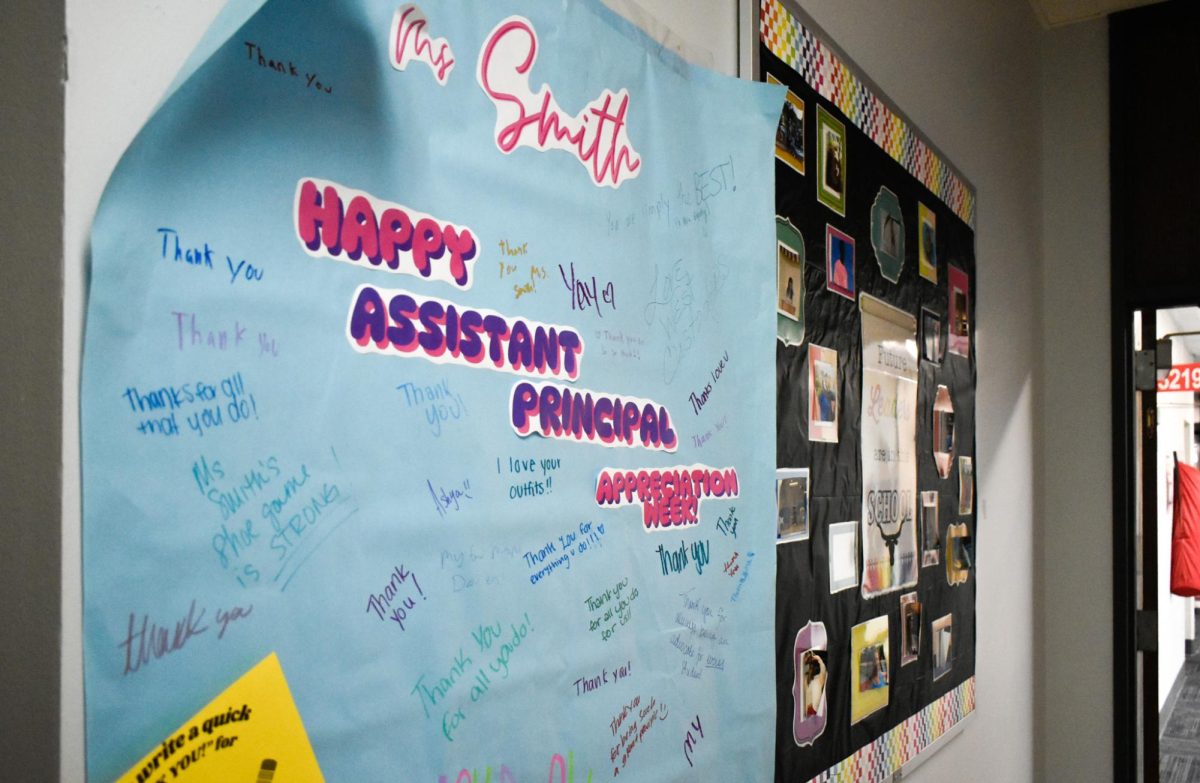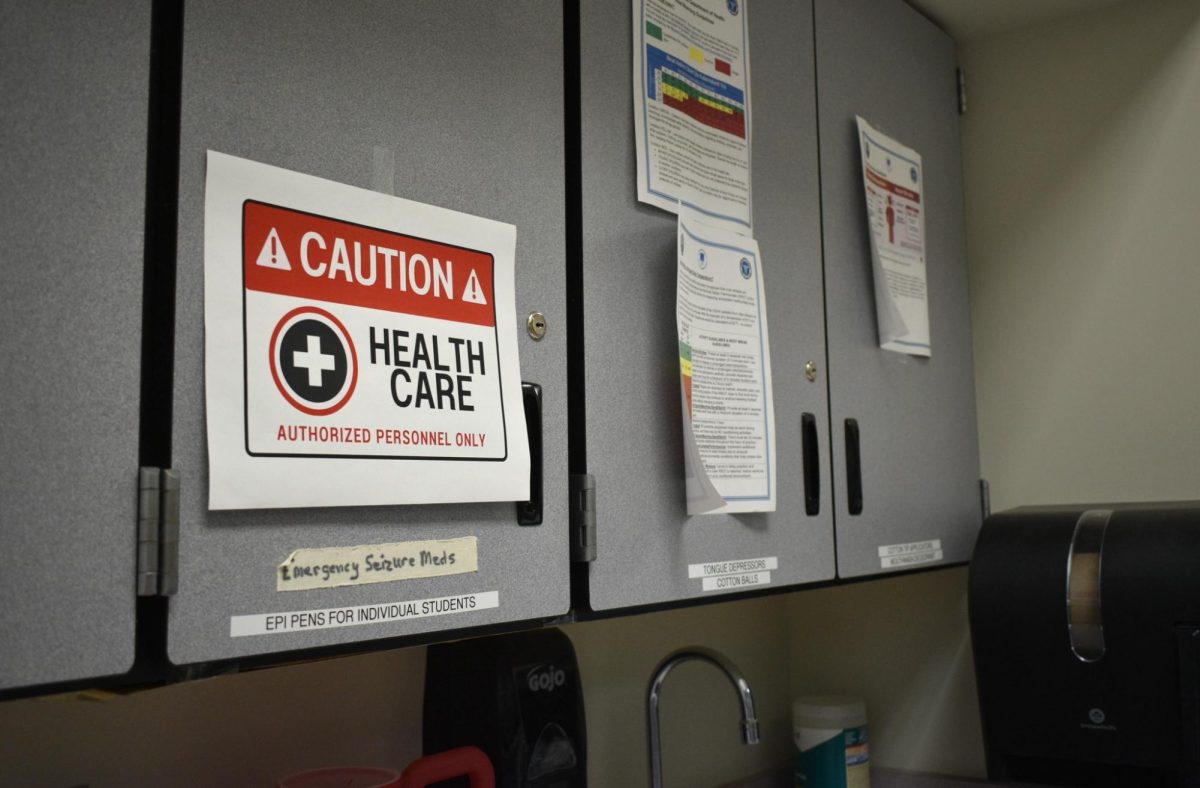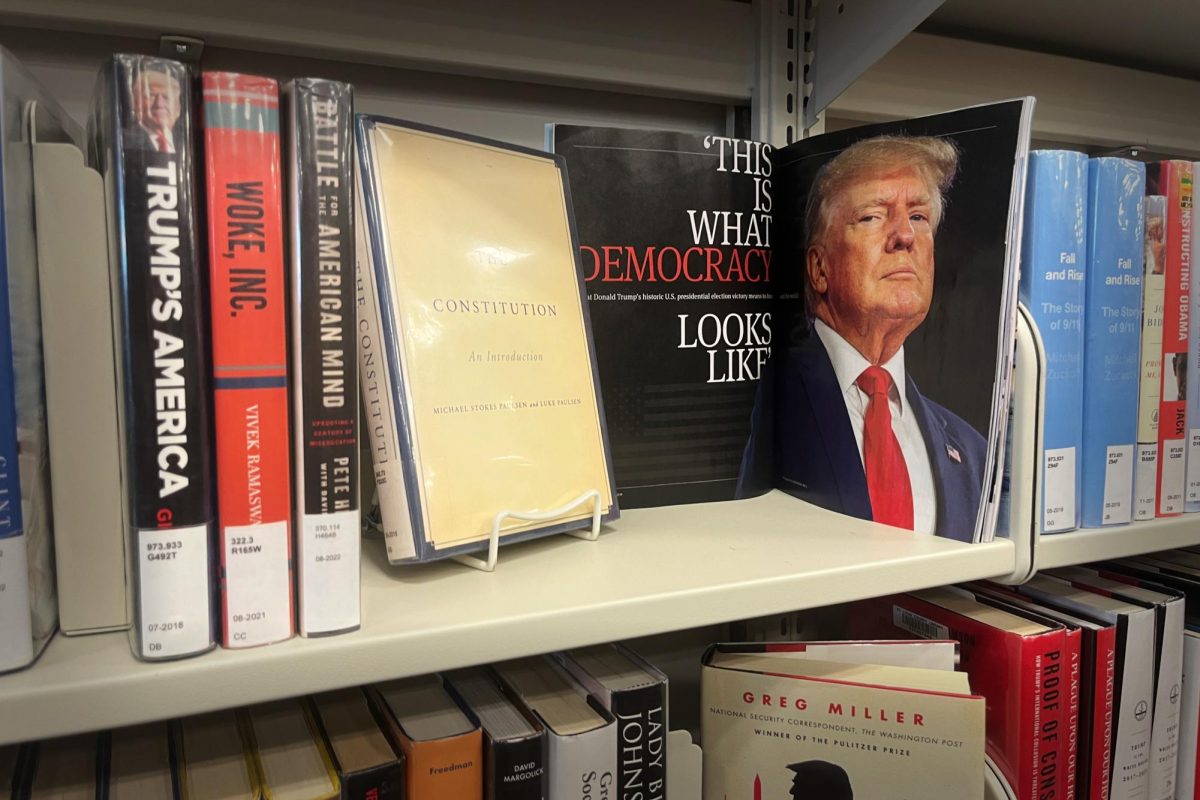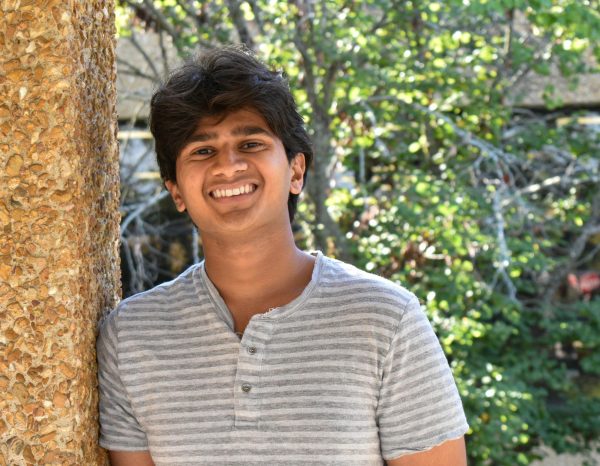April 22. Earth Day. A celebration of our planet and its incredible biodiversity. But take a peek at recent news headlines, and the only thing that seems to be on everyone’s mind is the looming climate crisis on the horizon.
Rising sea levels worsen natural disasters and put millions of lives near the coast at risk. Trees topple like dominoes in the Amazon, destroying centuries-old habitats of native animals. In the words of climate activist Greta Thunberg, “our house is on fire.” And this Earth Day, it’s clear that we need to be the change.
Climate change is anything but a recent issue in geopolitics. For decades, scientists have warned us about the dangers of our overconsumption of fossil fuels — anyone with ears could hear them, yet no one seemed to listen. As a result of corporate greed from faceless conglomerates, including the breaching of treaties, bribery and rampant corruption, there has been a severe lack of action by world governments to amend this pressing crisis. Fast forward to 2024, and we’re closer than ever to “the point of no return,” when climate change will have an irreversible effect on our planet forever. Which is where we come in.
Generation Z and our successors, Gen Alpha, are the inheritors of this fraught planet that we call Earth. As the stewards of our planet and our future, it’s up to us to make the right decisions and protect what we can — before it’s too late. It’s a misconception that young people can’t make change and that they are limited by their age and lack of worldly experience. As a matter of fact, young people might just be the only ones who can do what’s necessary to get ahead of the climate crisis and ensure the long-term sustainability of our home.
Why you should care
In the United States, a first-world country, it can often seem like we can make environmentally questionable actions without consequence; whenever we need water we just turn on the faucet, and whenever we want to go somewhere we just hop in a car and drive. But in a country of over 300 million people, every little action adds up, and soon every excess second we leave the tap on and every mile on the odometer will accumulate indefinitely. The average American emits 16 tons of greenhouse gasses per year, a number that’s only climbing with every passing year we remain dependent on these unsustainable sources of energy for our livelihoods. Nature keeps a receipt of all of our harmful doings and then makes sure that we pay for them one way or another.
To make matters worse, nature doesn’t distribute its punishments equally. It is the underprivileged areas around the Earth that face the brunt of our actions. In first-world countries, we can’t immediately see the consequences of what we do, which makes us perceive our actions to be less harmful than they actually are. But the ramifications are far from invisible.
“There are countries that are literally melting. There are countries where they can’t afford food because people [in first world countries] have all of the privilege to drive our own cars and waste that water and throw away those clothes. Those small changes aren’t impacting us. They’re impacting people in other countries and other places who are helpless,” junior and Sustainability Council board member Nidhi Pejathaya said.
Recently, the glitzy Middle Eastern city of Dubai, hallmarked by its arid climate, was barraged by a bizarre onslaught of torrential rain, a whole year’s worth in just one day. Lacking adequate infrastructure to deal with the downpour, apocalyptic scenes played out across the city as ceilings collapsed in on themselves, whipping winds sent roofs flying off houses and floodwater completely covered roads and runways, making travel next to impossible.
Some cite Dubai’s use of cloud seeding, where planes disperse chemical compounds into cloud layers to artificially produce precipitation, as the reason for the rain. However, many scientists counter that argument and say that climate change is the real culprit for last weekend’s pandemonium in the UAE.
When temperatures rise, it causes a greater rate of evaporation, and when heightened levels of water vapor find their way into the atmosphere, they serve as kindling for stronger storms across the globe. Events like the crisis in Dubai are just the tip of the rapidly melting iceberg, and they will only become more common if we continue down this same path.
“There’s a plethora of environmental issues that the world is grappling with right now. A lot of them affect people directly or indirectly, and a lot of people don’t know much about it, which is a problem,” AP Environmental Science teacher Paul Hage said.
Climate change and global warming are equal parts humanitarian issues and natural ones. Unpredictable precipitation patterns cause crop yields to dwindle and food insecurity to mount in rural areas. Stronger tropical storms on the coast leave many homeless and separated from their loved ones, forced to move somewhere else en masse.
All of this occurs while fossil fuel companies rake in more and more profit to continue funding their unsustainable practices, turning a blind eye to the horrific conditions that many are living in because of them. In 2022, the five biggest fossil fuel companies — ExxonMobil, Chevron, BP, Shell and TotalEnergies — made an astonishing $200 billion in profit, an enormous sum of money that could have been used to put towards funding sustainable energy that would ensure the longevity of our energy systems.
Ironically, this current system of doing things actually benefits zero of the parties involved, including fossil fuel companies themselves, who are only digging their own grave by continuing to invest in this doomed market. By continually investing in fossil fuels and unsustainable practices and refusing to look into greener alternatives, they are ensuring that the planet will never make the switch to true sustainability and continue depleting their own resources. At some point, the wells will run dry, and at the end of it all, what will be left?
“We’re finally at the age where we can see the differences now. Eventually, when you kill off everything else, who’s there to keep it going? What’s the point of making money?” Pejathaya said. “In the end, none of it is going to be worth anything because [we] destroyed so much.”
What you can do
Our generation is the first one that is feeling the long-term repercussions of humanity’s environmental foolishness, and the last ones that have any ability to fix it before it is too late. The Intergovernmental Panel on Climate Change projects that at our current trajectory, in order to prevent irreversible environmental damage from climate change, we need to halve our carbon emissions by 2030. The fabled “point of no return” is on the horizon, and we must step up and do what is right.
“[Humans] know that we’re the instigator of these problems. We have a moral obligation to fix the errors that we’ve made. Our well-being is tied to the environment,” Hage said.
Although the majority of high school students aren’t able to vote yet, that doesn’t mean that we can’t make change happen. The political channel might be closed to us, but we are the makers of our own future, and the regulators of our planet’s environmental health. And we have to understand the issue before we can make any real changes to it. Thus, self-education is the first step to ultimately helping the environment.
“Be educated. Be present in the news, understand what’s going on and try to learn things about environmental topics,” Hage said.
Hage teaches AP Environmental Science, a class that focuses on interactions between the human world and the natural world through the environment. As part of the curriculum, students constantly read current events and news about environmental issues around the world and discuss their thoughts and opinions.
“[AP Environmental Science] is such a scary class because it puts it into perspective that we are going to run out of fossil fuels, money [and] livable space. [We] don’t see it because we live in a first-world country,” Pejathaya said.
Surprisingly, the biggest thing that high schoolers can do to preserve the environment is to start small. Just like unsustainable practices, little sustainable switches in our day-to-day lives add up and eventually cascade into a measurable positive change. School-sponsored clubs like West’s Sustainability Council also offer a great opportunity for students to collaborate and make their schools more environmentally friendly.
“[Sustainability Council is] trying to get an actual compost system and an actual recycling system, because no one pays attention to what is recycling and what is trash. We’ve also been talking about trying to opt for more environmentally friendly lighting options that take up less energy,” Pejathaya said. “Our overall goal is to make at least one big [environmental] change every year.”
Sustainable choices don’t have to end when the school day does, though. The St. Louis area is filled with local conservation efforts and organizations that are committed to bettering the environment such as Operation Wild Lands and the St. Louis Wildlife Project. They are constantly looking for volunteers to help them and their good cause, and accept people of all ages. The idea that not being able to vote means that we are voiceless is a complete fallacy.
As the inheritors of this planet, it’s our responsibility to make it the best possible place for us and our children.
“[Sustainability Council] hope[s] to make change within our own school and decrease the amount of energy we’re using, the amount of [carbon dioxide] we’re putting out, the amount of waste we’re putting in. If we make a change, then the Parkway District makes a change. It’s a domino effect,” Pejathaya said.
Our fragile environment is the foundation on which our future balances, and as of right now, it’s crumbling. But all hope is not lost. By educating ourselves and others about the multitude of current environmental issues, making small changes in our daily lives and getting involved with the opportunities in our school and local communities, we can curb our emissions and take part in making the world a better, cleaner place.

![In the 1950s, the first recorded spikes in global temperatures were recorded, and ever since, Earth has been in the midst of a disastrous climate crisis, as rising temperatures wreak havoc on susceptible regions and destroy animal habitats worldwide. Junior Nidhi Pejathaya helped found West’s Sustainability Council to create a space where students can educate themselves about climate change and do their part to preserve the environment. “When you're going out of your way to recycle [or] reuse your clothes to save water, you're saving people. You're saving adults, you're saving families, you're saving children. You're saving a whole generation. Just because we don't see it doesn't mean it's not happening,” Pejathaya said.](https://pwestpathfinder.com/wp-content/uploads/2024/04/new-editorial-feature-1200x800.jpg)


![Red, white and blue, the American flag holds the values of our democracy. The fight that we once endured has returned, as student journalists and senior correspondents across the country are losing their voices due to government control. “[Are] the White House and [the] government limiting free speech [and] freedom of the press? Yes [they are],” chief communications officer of the Parkway School District and former journalist Elisa Tomich said.](https://pwestpathfinder.com/wp-content/uploads/2025/03/Untitled-design-14.jpg)
![A board in the Parkway West counseling department displays pennants of selective universities. With a wide range of students interested in attending, it’s important that these schools have clear priorities when deciding who to admit. “[Washington University] had the major that I wanted, psychology, philosophy, neuroscience. That's a holistic study of the brain, and [WashU is] the only college in the world that offers that. That's the main reason I wanted to go; I got into that program,” senior Dima Layth said.](https://pwestpathfinder.com/wp-content/uploads/2025/02/Flag-1.png)

![Within the U.S., the busiest shopping period of the year is Cyber Week, the time from Thanksgiving through Black Friday and Cyber Monday. This year, shoppers spent $13.3 billion on Cyber Monday, which is a 7.3% year-over-year increase from 2023. “When I was younger, I would always be out with my mom getting Christmas gifts or just shopping in general. Now, as she has gotten older, I've noticed [that almost] every day, I'll open the front door and there's three packages that my mom has ordered. Part of that is she just doesn't always have the time to go to a store for 30 minutes to an hour, but the other part is when she gets bored, she has easy access to [shopping],” junior Grace Garetson said.](https://pwestpathfinder.com/wp-content/uploads/2024/12/DSC_0249.JPG-1200x801.jpg)

![Senior Sally Peters stands in the history hallway, contemplating her choices in the 2024 United States and Missouri elections on Nov. 5. As a member of Diplomacy Club, Peters has discussed key candidates and issues in contemporary American politics. “[As students], we're starting to become adults. We're realizing how much the policies that are enforced and the laws that make it through the House and Senate are starting to affect us. [Opportunities such as] AP [U.S.Government] and Diplomacy Club [make elections feel] a lot more real,” Diplomacy Club vice president and senior Nidhisha Pejathaya said.](https://pwestpathfinder.com/wp-content/uploads/2024/10/Flag-1-1.png)
![Mounting school pressure can leave many students overworked and overstressed. Schools must give students the necessary resources to help assuage student mental health issues and prevent the development of serious crises. “The biggest thing [schools] can do [to protect student mental health] is offer more time [to do work], like a study hall, or offer more support from teachers so that students don't feel stressed out and can get help in areas that they need,” senior Bhavya Gupta said.](https://pwestpathfinder.com/wp-content/uploads/2024/09/unnamed-4.jpg)
![Like many students, sophomore Medina Nanic experiences pressure to do well in school. Through continuous success and achievements, West has developed a high academic standard for students. “Because we’re seen as one [of] the better schools, we have higher standards than the [schools] who aren’t ranked as high. There’s a lot of pressure on students to do [well] and live up to those standards,” Nanic said.](https://pwestpathfinder.com/wp-content/uploads/2024/05/DSC_0029-2-1200x800.jpg)

Kathy Balmer • Apr 29, 2024 at 1:52 pm
Excellent article! I would highly recommend contacting Danielle Meert, the owner of MOshrooms Regenerative Microfarm, to see if she could come and give a presentation at the school about her environmentally sustainable practices. She has given several presentations to nearby schools and she is an excellent resource in this area. Please contact me to find out more about Danielle, the microfarm and how to contact her on her website.